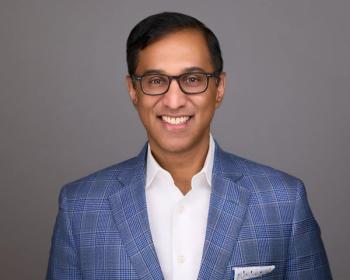The business of running a primary care medical practice has never been more complex. Many physicians seek out concierge (membership model) medicine programs as a way to reduce administrative burdens and put patients first while reducing burnout and improving revenue and career satisfaction.
But transitioning to concierge medicine without a proven model can be complicated. Although some physicians go it alone on their concierge transition, it can leave them with the same or similar challenges, including too many hours worked and too many hours worrying about the business side of the practice.
Real success in concierge medicine requires an expert partner, according to Paul Knoepflmacher, M.D., an internist who left traditional medicine and joined Castle Connolly Private Health Partners, LLC (CCPHP). We sat down with Knoepflmacher to learn about his move to concierge medicine and why he chose CCPHP.
Medical Economics: What challenges did you experience in your practice before partnering with CCPHP?
Paul Knoepflmacher, M.D.: I worked in a traditional practice for 16 years before changing the care model. During that time, I faced many of the same challenges that I think most physicians encounter when it comes to taking care of patients in a busy clinical setting. Namely, the tension that arises from trying to provide the best possible care under severe time constraints.
As my practice grew, the time pressure multiplied. To compensate, I spent more time on visits than was allotted, resulting in my frequently running behind. I was never done with work when the office closed. Most days I stayed long into the evening to finish charting and to return calls. It was common to work weekends to catch up on paperwork.
About Paul Knoepflmacher, M.D.
Specialty: Internal Medicine
Education: Internship and residency in the Department of Medicine at the Mount Sinai Hospital in New York City; medical degree from University of Medicine and Dentistry of New Jersey in Newark; bachelor of arts degree from the University of California, Santa Cruz.
Highlights: Served in U.S. Peace Corps in Costa Rica for three years; received Richard Gorlin Award for resident humanitarianism; served as chief resident at Mount Sinai Hospital.
Medical Economics: How has the concierge model helped you achieve new levels of success in your practice?
Paul Knoepflmacher, M.D.: I define success as the correction of the imbalances inherent in my former practice. Having fewer patients enables me to devote more time to my patients. I don’t feel rushed. I have time to get to know patients, which makes for a more satisfying experience. I also have more space to think about cases, research them and appreciate nuances that were previously more difficult to appreciate due to the lack of time.
Medical Economics: What has the transition to concierge medicine meant to you in terms of your own well-being and work-life balance?
Paul Knoepflmacher, M.D.: The practice of medicine is satisfying, but the work is demanding and intense, so it’s important to be able to separate to recharge. The switch to my current practice type has afforded me a cleaner separation between life in and out of the office. Now I am almost always done with patient-related duties by the end of the workday so that routine work doesn’t tend to encroach on nights or weekends. Seven years ago, I was heading toward burnout. Now that the work part of the equation has improved, I’m taking fuller advantage of my time out of the office and appreciating the time in the office much more.
Medical Economics: What are your hopes for the future of your program and partnership with CCPHP?
Paul Knoepflmacher, M.D.: I began this program almost seven years ago. Since then, the practice has grown to a comfortable size; I’m happy with the pace. I want to be able to continue to grow as a physician, continue honing the art and the science of medicine and provide my patients with the highest level of care possible. It has been very helpful to have the support of CCPHP in terms of everything from the back office and technical aspects to innovative programming and service options and amenities to promote wellness for patients.
Medical Economics: What advice do you have for other physicians considering signing up with a concierge service such as CCPHP?
Paul Knoepflmacher, M.D.: It is essential to have done your homework and to be as clear as possible about your goals. This step represents a major investment of time and energy. Keep in mind that you will be working full time in your practice during the transition. This is where having a superb partner like CCPHP is crucial. You need a team that has this specific expertise and experience so you feel confident that it has a high probability of success and is the right step for you. The projection, the planning, the execution and the maintenance of the new practice, once it is up and running, require coordination and skill that most doctors don’t have the time or expertise to carry out on their own. I feel very fortunate to partner with Castle Connolly Private Health Partners.
Learn more about how CCPHP can help you at our website or call us at 631-250-4450.



